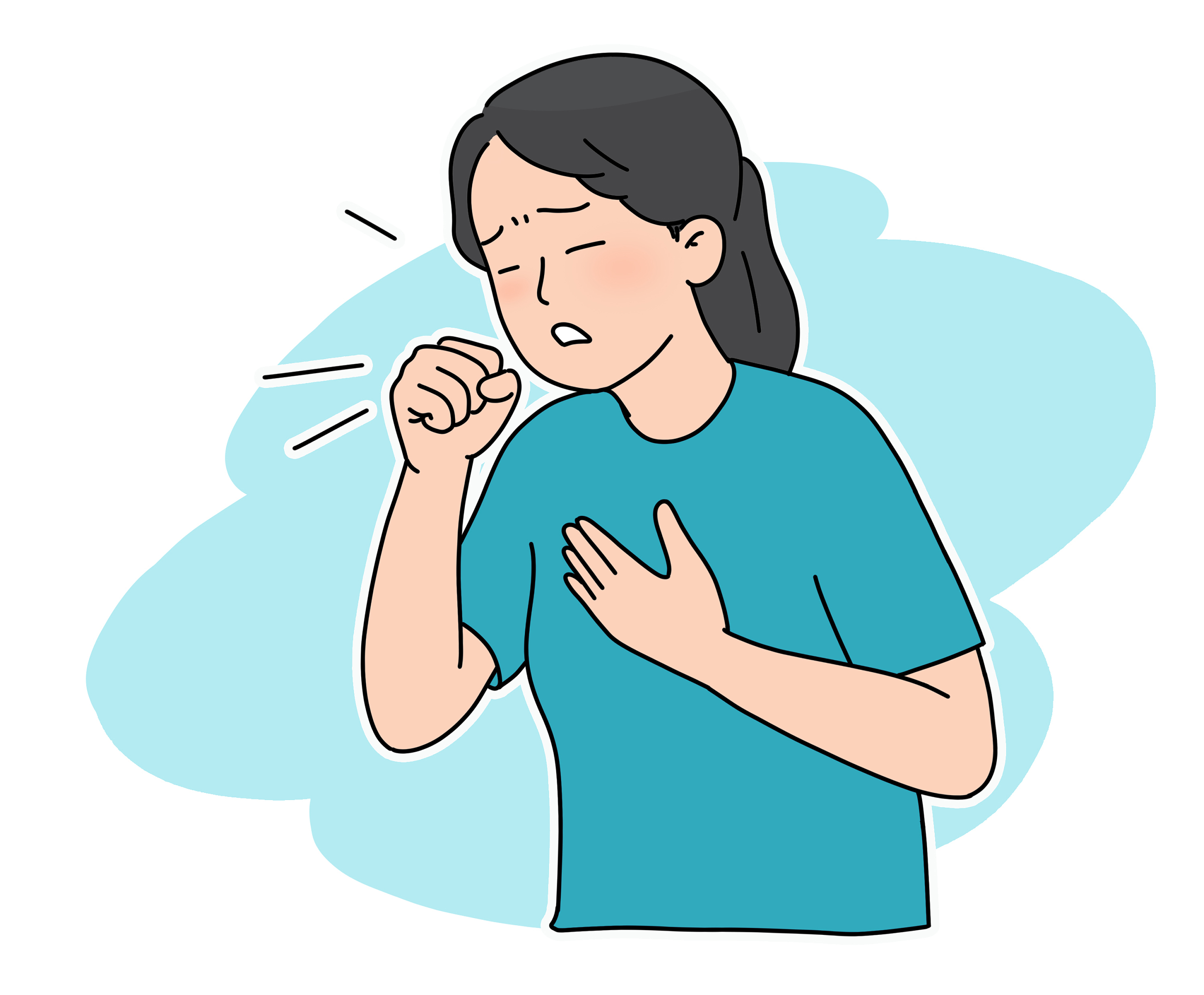Dealing with a Lingering Cough

A cartoon picture shows a woman is coughing. (PHOTO:VCG)
By Staff Reporters
"We've seen an unusually large number of patients who have had typical viral upper respiratory infections, but have had a persistent cough for weeks or months," said Dr.Sun Xiangjuan of Sichuan TCM Hospital, adding that many of her patients have recently come to her office with a nasty cough that has lasted for about two weeks.
According to the information provided by WHO, it is confirmed that the main reason for this wave of respiratory disease epidemics is a common winter infection, not a new pathogen, nor caused by the novel coronavirus mutant strain.
Wang Huaqing, chief expert at the Chinese Center for Disease Control and Prevention, said the pathogens currently being monitored are mainly influenza viruses.
These viruses cause flu and cold-like symptoms that can last for some time. When a virus enters our respiratory tract, it infects our cells and replicates. This can cause a lot of inflammation and irritation in the throat, nose and chest that lasts for a long time.
In fact, Sun says the persistent cough is most likely due to prolonged inflammation in the airways — even after the virus is gone, the body continues to produce mucus and have bronchospasms, which is the reason to causes a cough. For some people, this inflammation can last anywhere from two weeks to two months, she explained.
While most causes of a persistent cough are mild and easily treated, a persistent cough is bothersome and can affect your quality of life. Getting prompt and effective treatment is advisable.
TCM experts recommend non-pharmaceutical methods to alleviate persistent coughing. One effective approach is point massage, specifically at the Tiantu and Hegu acupoints. The Tiantu acupoint is located in the suprasternal fossa, just above the jugular notch. By gently pressing this acupoint with fingers, one can feel a refreshing sensation in the throat area, which helps to open the respiratory tract.
The Hegu acupoint massage, on the dorsum of the hand, between the 1st and 2nd metacarpal bones, can relieve asthma, eliminate heat toxicity, and alleviate symptoms of numbness, pain and fever.
For individuals who are prone to catching a cold and having a cough, moxibustion can be a helpful alternative. Moxa sticks, made from mugwort leaves, stimulate the acupoints to promote the activity of meridians, regulating the disrupted physiological functions of the body.
In addition, herbal fumigation is widely used in the treatment of symptoms such as fever, runny nose, and coughing. At home, one can use herbs like Artemisia annua, Schizonepeta, and Artemisia argyi to make infusions for bathing, which can help relieve symptoms like fever.







